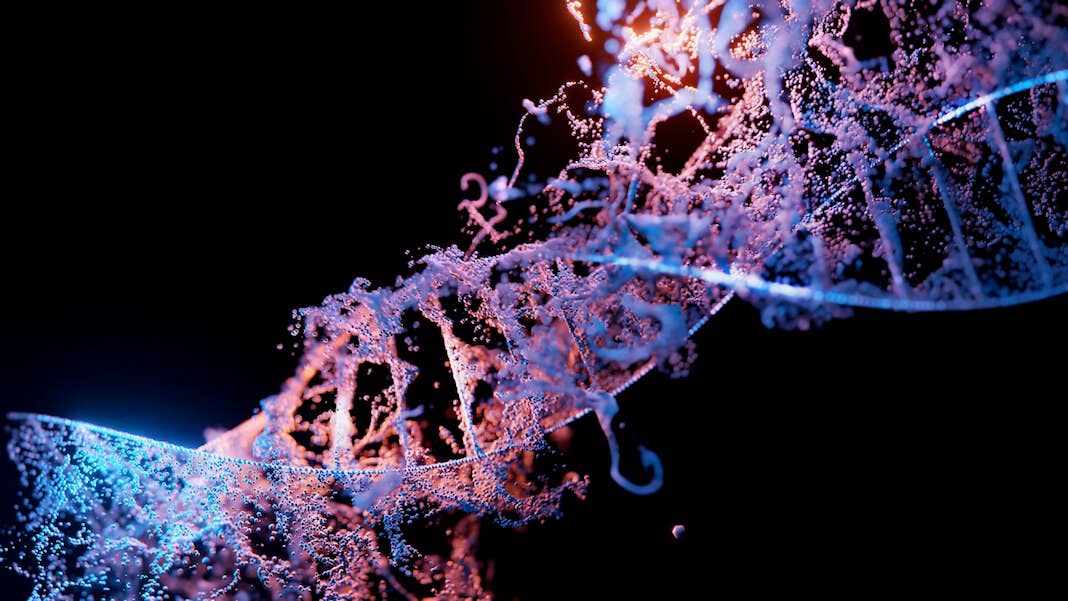UK Plans for Human-Animal Genetic Hybrids

Share
Britain is planning for a future present when human and animal genes are mixed. As scientists continue to use human genes implanted in animals to create new medicines and understand our biology, it seems increasingly likely that we'll blur the genetic distinctions between man and beast. The UK wants to be ready. After polling citizens and researchers alike, the British Academy of Medical Sciences released a report [PDF] detailing how they believed the nation should handle all future blending of human and animal genes: very carefully.
They recommend that research involving "animals containing human materials" (ACHM) should be overseen by a regulatory body, it should be categorized according to the degree in which human genes are used, and Britain should try to influence other nations to do the same. With a strong chance of impacting scientific research in both the UK and the rest of the globe, the Academy's recommendations are an indication of how governments (and their people) may influence the path of genetic science to prevent the creation of "monsters." Yet in many ways the mixing of animal and human DNA has already progressed so far that no regulations may be able to control it. Too little, too late?
In the creation of the report from the the British Academy of Medical Sciences, they interviewed more than a thousand UK citizens in multi-day discussions on the nature of transgenic science. Overall, attitudes towards ACHM were positive when portrayed as helping to create new medicines or to cure genetic diseases. In fact, the opposition towards this research could largely be attributed to three areas of concern. People were uncomfortable with scientists: 1) modifying animal brains to be more human, 2) creating human embryos inside animals, and 3) changing animals to have more human-like appearances and/or behaviors.
"I don’t necessarily like it, but if it delivers benefits then it’s worth it."
– Participant of public dialogue on ACHM
"I don’t have a problem with it until it gets to the brain—liver, heart, etc. are all fine. It’s the brain which makes people humans."
– Public Dialogue, Newcastle.
That seems pretty straightforward, doesn't it? Likewise, the guidelines the Academy wishes to impose on genetic research are similarly simple. An appropriate government regulatory body should oversee future research, various institutions in the government should work together to ensure there are no regulatory gaps, and the UK should export such regulations overseas as they are able. In this vision, the vast majority of research with animals would go unchanged, as it does not involve ACHM. Some research, like that utilizing animals with a few spliced genes, would proceed with (essentially current levels of) oversight, and a few types of experiments (none of which have actually been attempted yet in the UK) would be banned or at least allowed on very limited bases. No super smart chimps, no dogs with human faces, and no human embryos growing in a pig uterus.
Of course, as admirable as it is that the UK is considering the most ethical ways of handling ACHM, I think there's little chance they'd be able to stop the most "heinous" forms of human-animal hybridization from occurring. As the Academy points out in their report, splicing human genes into animals is a commonplace practice in many labs in the UK and the world. We've discussed many successful experiments that were only made possible by using mice and rats with human genes. From curing Alzheimer's to transmogrifying skin cells, transgenic rodents have become a mainstay of research. In their coverage of the Academy report, Reuters highlights how scientists have created a Down syndrome mouse with 300 human genes, and another rodent whose liver is comprised of 95 percent human cells. Such experiments have an enormous potential to help us through improvements in medical science and in many cases represent the best opportunities we have to challenge horrendous diseases. So there's obvious moral pressure to continue that research (which, to be clear, the Academy's report totally supports).
There's also economic pressure. One of the best (and most popular) anti-coagulants/anti-inflammatory medications is created from the milk of goats that have been spliced with human genes (brand name: ATryn). Genetically modified food animals are likely on the verge of making a large impact on our meat markets, either because they grow more quickly or because they have distinct advantages compared to their natural cousins. Do we honestly believe that if splicing in a human gene would improve the profitability of these animals, companies wouldn't be eager to try such modifications? There's money to be made in the most liberal use of genetic alterations to animals.
Be Part of the Future
Sign up to receive top stories about groundbreaking technologies and visionary thinkers from SingularityHub.


Clearly then, money and medical concerns are going to continue pushing scientists to find more ways of utilizing human genes in animals, and vice versa. The UK style of regulation might be able to cope with such pressures, but that's just the beginning. We've reached a point in genetics, a background level of understanding, that makes it possible to splice genes relatively easily between certain mammals. As we get better at all the "approved" kinds of ACHM research, the "forbidden" types are going to get easier too. Somewhere, at some point, some institutions are going to take steps in creating human-animal chimeras that will astound and horrify mainstream citizens. As Reuters points out, Chinese scientists have already spliced human stem cells into a goat fetus. Other researchers around the world will follow. Even if you could regulate 90 percent of genetic science, the remaining 10 percent is going to keep going. The technology is too advanced to keep everyone from crossing some arbitrary line Britain draws in the sand.
I truly believe scientific progress should be guided by strong ethical concerns. I don't, however, think such ethics can possibly be imposed universally. Give it a decade or two, and humanity is going to genetically engineer some very human-like animals. The real question isn't how we stop them from being created, it's what do we do once they get here. Because one way or another, the monsters are coming.
Singularity Hub has always championed discussing how our legal and social systems will need to change to deal with the rise of artificial intelligence. Now is a good time to point out that such intelligence may come from genetics as well as computer science. Carbon or silicon, humanity's creations are going to need rights. Where's that report when you need it?
Sources: Reuters, British Academy of Medical Sciences [PDF]
Image Credit: Sangharsh Lohakare / Unsplash
Related Articles

More Space Junk Is Plummeting to Earth. Earthquake Sensors Can Track It by the Sonic Booms.

Researchers Break Open AI’s Black Box—and Use What They Find Inside to Control It

This Week’s Awesome Tech Stories From Around the Web (Through February 21)
What we’re reading